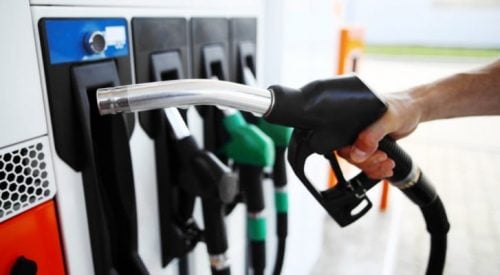Gasoline prices in Jordan for the month of February (2023) are scheduled to witness a new increase, after a significant decline in fuel prices during the current month.
The decline in fuel prices in Jordan in January came as part of the country’s government efforts to control the anger caused by the recent large increase in fuel prices over the past year, according to data monitored by the specialized energy platform.
Today, Tuesday, January 31, the Petroleum Derivatives Pricing Committee announced the prices of gasoline in Jordan and other oil derivatives, which are expected to be implemented during February (2023).
The committee decided to raise the price of gasoline in Jordan by about 45 fils, and to fix the price of diesel and kerosene, according to a statement obtained by the specialized energy platform.
Gasoline prices in Jordan for February 2023
Today, Tuesday, the Petroleum Derivatives Pricing Committee held its monthly meeting to determine the prices of gasoline in Jordan and other oil derivatives, during the period from February 1 to February 28.
The committee reviewed the international prices of crude oil and petroleum derivatives during January, and compared them with their counterparts for the month of December.
The committee decided to fix the price of kerosene and diesel during February, based on royal directives in this regard.
The Petroleum Derivatives Pricing Committee decided – after applying the price equation – to raise the price of 90-octane gasoline by about 45 fils, and the price of 95-octane gasoline increased by 45 fils.
The prices of gasoline in Jordan for the month of February 2022 and other oil derivatives, which are scheduled to be implemented starting tomorrow, Wednesday, are as follows:
- Increasing the price of a liter of 90 octane petrol to 945 fils instead of 900 fils.
- Increasing the price of a liter of 95 octane petrol to 1185 fils, instead of 1140 fils.
- Fixing the price of a liter of diesel at 820 fils.
- Fixing the price of kerosene at 620 fils.
- Fixing the price of a domestic gas cylinder (liquefied petroleum gas) at 7 dinars.
* (1000 fils is equivalent to a Jordanian dinar = 1.41 US dollars)
Jordan’s fuel bill
Jordan is facing a significant increase in the bill for oil derivatives, as it secures about 90% of its needs by importing them from abroad, with the decline in oil production from the Hamzah field – the only oil field produced in the Kingdom -.
Jordan’s imports of oil and its derivatives recorded a significant jump during the first 11 months of 2022, an increase of 54.6%, compared to the same period with 2021.
Jordan’s imports of oil and its derivatives rose to about 3.249 billion dinars ($4.58 billion) by the end of November 2022, compared to 2.101 billion dinars ($2.96 billion) for the same period of 2021.
Jordan worked to move fuel prices over the past year to counter the sharp rise in energy prices in the aftermath of the Russian-Ukrainian war.
Fuel prices have increased in Jordan since 2020, by rates ranging between 29 and 36%, with the exception of domestic gas cylinders, which kept their price at 7 dinars.
And Jordanian Finance Minister Muhammad Al-Ississ recently indicated in statements to parliament that the government’s decision to fix fuel prices in Jordan for part of 2022 caused costs to the country’s budget, estimated at 505 million dinars ($712 million).

Fuel price taxes in Arden
Jordanian Prime Minister Bishr Al-Khasawneh rejected calls for a reduction in fuel prices, especially diesel and gasoline, and the abolition of the added tax on them, stressing that his government will reflect the prices of oil derivatives at the international price on local prices, down or up.
Al-Khasawneh said that the public treasury does not have the luxury of subsidizing fuel again, because this will result in an additional budget deficit and an increase in indebtedness, especially after subsidizing fuel with 550 million dinars ($774 million) during 2022.
Taxes on fuel prices in Jordan are one of the main reasons for the high fuel prices and their record levels, compared to many Arab countries.
The special tax imposed by the government on diesel and kerosene is about 16.5 piasters per liter of these two materials, while the government imposes a special tax on 90-octane gasoline at 37 piasters per liter, and 57.5 piasters per liter of 95-octane gasoline. .
Jordan’s King Abdullah II recently directed the government to freeze the tax on kerosene, which is one of the most consumed fuels in the kingdom, during the winter season, with the aim of easing the burden on citizens.
Tax revenues on fuel prices in Jordan are part of the state’s general budget and are spent on education, health and the National Aid Fund.
related topics..
Also read..

Leave a Reply